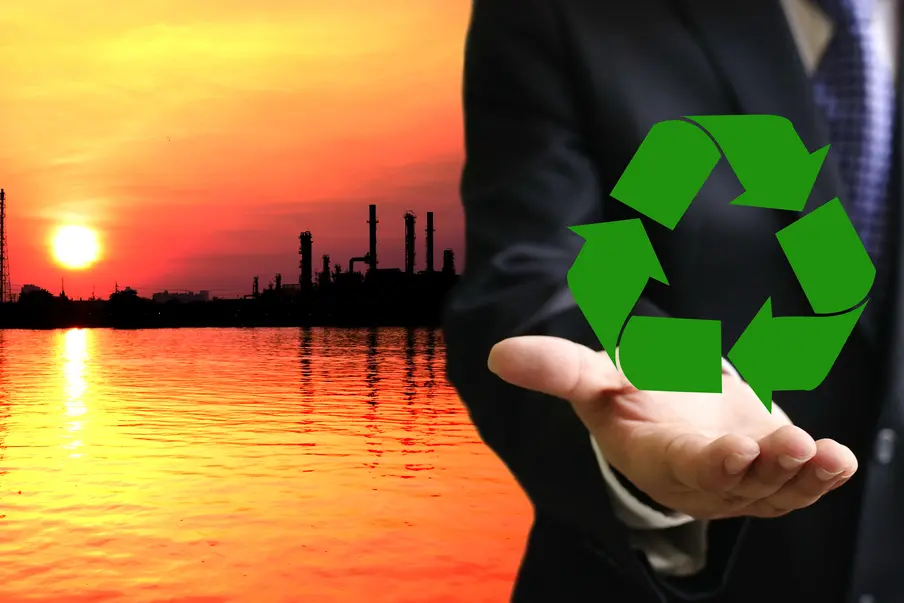PHOTO
Bahrain - Recycling equipment that would convert domestic waste into fertiliser could be made compulsory in homes and other locations across Bahrain.
The plan was revealed by Northern Municipality director general Yousif Al Ghatam, who said the legislation was now being drafted.
He said it would be introduced on a phased basis, first in restaurants and malls and later in homes.
“Equipment that costs between BD200 and BD300 can turn domestic waste into fertilisers,” he told the GDN.
“The equipment can accept from one kilogram up to 15 tonnes within three to four hours – turning around 90pc of domestic waste into fertilisers.
“Legislation is being drawn up to make it compulsory – at restaurants, malls and shopping centres in the first phase and later on in homes.
“We will seek to have the rules completely drawn up over the next three months.”
Mr Al Ghatam also revealed plans to tie up with an international company and introduce utensils made from corn and plants, rather than plastic, into the market.
He was speaking after attending the World Future Energy Summit in Abu Dhabi, where he also shared details of an initiative currently underway to recycle old tyres and rubber to make doors and building materials.
Mr Al Ghatam said it involved the use of nanotechnology to recycle unwanted rubber, which would otherwise have ended up in the country’s landfill site.
“The introduction of nanotechnology for used tyres and rubber, despite being a limited scale project, has seen effectiveness that we want to share with the world as an international strategy,” Mr Al Ghatam, who is also National Cleanliness Committee chairman, told the GDN.
“We can help the world by sharing how we managed to turn tyres and rubber into materials for construction – and at the same time get support for our attempts to go full scale here in Bahrain.”
However, he said more needed to be done to reduce the amount of waste destined for the landfill in Hafeera, which is expected to reach full capacity in the next three years.
Tyres
Mr Al Ghatam revealed as many as one million used tyres were being dumped there every year, raising concerns due to their non-biodegradable nature.
“Bahrain is still suffering from large quantities being dumped into the landfill in Hafeera,” he added.
“Figuring out recycling strategies and speeding up the process requires changing people’s culture and attitude towards waste management.”
He revealed one company had also come forward to discuss converting discarded tyres into energy.
“We have been approached following the initiative announced by a company that can turn used tyres into energy that could run cement factories, besides current operations we are doing on a small scale,” said Mr Al Ghatam.
“There are other firms that have presented ideas based on experience in their countries.”
© Copyright 2018 www.gdnonline.com
Copyright 2017 Al Hilal Publishing and Marketing Group Provided by SyndiGate Media Inc. (Syndigate.info).
The plan was revealed by Northern Municipality director general Yousif Al Ghatam, who said the legislation was now being drafted.
He said it would be introduced on a phased basis, first in restaurants and malls and later in homes.
“Equipment that costs between BD200 and BD300 can turn domestic waste into fertilisers,” he told the GDN.
“The equipment can accept from one kilogram up to 15 tonnes within three to four hours – turning around 90pc of domestic waste into fertilisers.
“Legislation is being drawn up to make it compulsory – at restaurants, malls and shopping centres in the first phase and later on in homes.
“We will seek to have the rules completely drawn up over the next three months.”
Mr Al Ghatam also revealed plans to tie up with an international company and introduce utensils made from corn and plants, rather than plastic, into the market.
He was speaking after attending the World Future Energy Summit in Abu Dhabi, where he also shared details of an initiative currently underway to recycle old tyres and rubber to make doors and building materials.
Mr Al Ghatam said it involved the use of nanotechnology to recycle unwanted rubber, which would otherwise have ended up in the country’s landfill site.
“The introduction of nanotechnology for used tyres and rubber, despite being a limited scale project, has seen effectiveness that we want to share with the world as an international strategy,” Mr Al Ghatam, who is also National Cleanliness Committee chairman, told the GDN.
“We can help the world by sharing how we managed to turn tyres and rubber into materials for construction – and at the same time get support for our attempts to go full scale here in Bahrain.”
However, he said more needed to be done to reduce the amount of waste destined for the landfill in Hafeera, which is expected to reach full capacity in the next three years.
Tyres
Mr Al Ghatam revealed as many as one million used tyres were being dumped there every year, raising concerns due to their non-biodegradable nature.
“Bahrain is still suffering from large quantities being dumped into the landfill in Hafeera,” he added.
“Figuring out recycling strategies and speeding up the process requires changing people’s culture and attitude towards waste management.”
He revealed one company had also come forward to discuss converting discarded tyres into energy.
“We have been approached following the initiative announced by a company that can turn used tyres into energy that could run cement factories, besides current operations we are doing on a small scale,” said Mr Al Ghatam.
“There are other firms that have presented ideas based on experience in their countries.”
© Copyright 2018 www.gdnonline.com
Copyright 2017 Al Hilal Publishing and Marketing Group Provided by SyndiGate Media Inc. (Syndigate.info).





















